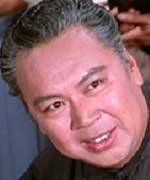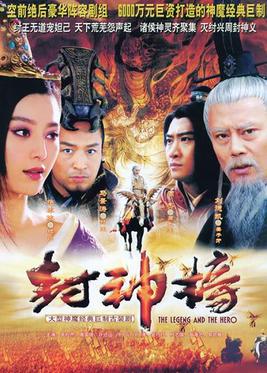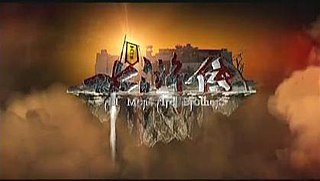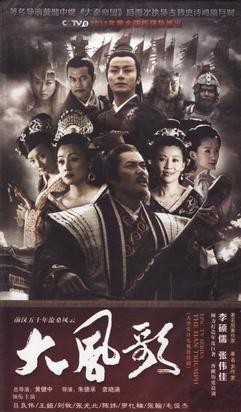
Lo Wei was a Hong Kong film director and film actor best known for launching the martial arts film careers of both Bruce Lee, in The Big Boss and Fist of Fury, and Jackie Chan, in New Fist of Fury.

Shek Wing-cheung, better known by his stage name Shih Kien, Sek Kin, or Sek Gin or Shek Kin(Chinese: 石堅; pinyin: Shí Jiān; Jyutping: Sek6 Gin1), was a Hong Kong–based Chinese actor and martial artist. Shih is best known for playing antagonists and villains in several early Hong Kong wuxia and martial arts films that dated back to the black-and-white period, and is most familiar to Western audiences for his portrayal of the primary villain, Han, in the 1973 martial arts film Enter the Dragon, which starred Bruce Lee.

Romance of the Three Kingdoms is a Chinese television series adapted from the classical 14th century novel of the same title by Luo Guanzhong. The series was produced by China Central Television (CCTV) and was first aired on the network in 1994. It spanned a total of 84 episodes, each approximately 45 minutes long. One of the most expensive television series produced at the time, the project was completed over four years and involved over 400,000 cast and crew members, including divisions of the People's Liberation Army from the Beijing, Nanjing and Chengdu military regions. Some of the dialogues spoken by characters were adapted directly from the novel. Extensive battle scenes, such as the battles of Guandu, Red Cliffs and Xiaoting, were also live-acted.

Three Kingdoms is a 2010 Chinese television series based on the events in the late Eastern Han dynasty and the Three Kingdoms period. The plot is adapted from the 14th century historical novel Romance of the Three Kingdoms and other stories about the Three Kingdoms period. Directed by Gao Xixi, the series had a budget of over 160 million RMB and took five years of pre-production work. Shooting of the series commenced in October 2008, and it was released in China in May 2010.

Royal Tramp is a 2008 Chinese television series adapted from Louis Cha's novel The Deer and the Cauldron. Produced by Zhang Jizhong and Huayi Brothers, the series consists of 50 episodes, filmed in high definition. The series was first broadcast on Jiangsu TV in China in 2008 and was subsequently aired on TVB in Hong Kong and other countries.
Wei Ping-ao, also known as Paul Wei, was a Hong Kong-based Chinese actor who started his career in the Shaw Brothers Studio. He is best known for playing cunning interpreters in Bruce Lee's 1972 films Fist of Fury and Way of the Dragon, in which he dubbed his own voice, and also appeared in films such as Deaf Mute Heroine (1971), Hapkido (1972) and Fists of Bruce Lee (1978). He suffered from jaundice in his later years. He died on 3 December 1989 in British Hong Kong.

The Story of Han Dynasty is a Chinese television series based on the events in the Chu–Han Contention, an interregnum between the fall of the Qin dynasty and the founding of the Han dynasty in Chinese history. The series was first broadcast on CCTV in China in 2003. Directed by Wei Handao, the series starred Hu Jun, Xiao Rongsheng, Jacklyn Wu, Kristy Yang, Wang Gang and Li Li-chun.

Fox Volant of the Snowy Mountain is a 2006 Hong Kong-Chinese television series adapted from Louis Cha's novels Fox Volant of the Snowy Mountain and The Young Flying Fox. Directed by Andrew Lau and Tam Yau-yip, the series is a co-production by the Hong Kong companies ATV and TVB and Ciwen Pictures, with Wong Jing as producer, starring Nie Yuan, Athena Chu, Gillian Chung, Ady An, Alex Fong, Anthony Wong and Patrick Tam. It was first broadcast in Hong Kong on ATV in 2006.

The Legend and the Hero is a 2007 Chinese television series adapted from the 16th-century novel Fengshen Yanyi written by Xu Zhonglin and Lu Xixing. The first season started airing on CCTV-8 in February 2007. It was followed by a sequel, The Legend and the Hero 2 in 2009.
Book and Sword Chronicles is a Taiwanese television series adapted from Louis Cha's novel The Book and the Sword. It was first broadcast on TTV in Taiwan in 1984.

All Men Are Brothers is a 2011 Chinese television series adapted from Shi Nai'an's 14th century novel Water Margin, one of the Four Great Classical Novels of Chinese literature. The series is directed by Kuk Kwok-leung and features cast members from mainland China, Taiwan and Hong Kong. The series was first broadcast on 8TV in March 2011 in Malaysia.

The Heaven Sword and Dragon Saber is a Taiwanese television series adapted from Louis Cha's novel of the same title. The series was first broadcast on TTV in Taiwan in October 1984.

The Han Triumph, also known as Wind Ode, is a Chinese television series based on historical events in the early Han dynasty, beginning with the founding of the dynasty by Liu Bang after his triumph over Xiang Yu, and the events leading to the reign of Liu Heng. Directed by Huang Jianzhong, the series starred Ray Lui, Wang Ji, Liu Mu, Zhang Guangbei, Chen Wei and Li Qingxiang in the leading roles. It was first broadcast on CCTV-8 in China on 17 December 2011.

Justice Bao is a Chinese TV series starring producer Jin Chao-chun as the Song dynasty official Bao Zheng. The series ran for 3 seasons from 2010 to 2012. In addition to Jin, Kenny Ho, Fan Hung-hsuan and Lung Lung again reprise their iconic roles from the 1993 Taiwanese hit Justice Pao and the 2008 Chinese series Justice Bao.

Tang Ming Huang is a Chinese television series based on historical events in the reign of Emperor Xuanzong of the Tang dynasty. The series was directed by Chen Jialin and starred Liu Wei as the eponymous emperor. It was first broadcast on CCTV-1 in 1990 in mainland China.
The Dark Tales is a series of Hong Kong television period supernatural dramas that originally aired on Jade from 18 March 1996 to 1 May 1998, consisting of two installments with 75 episodes. Based on Qing Dynasty writer Pu Songling's series of supernatural tales called Strange Stories from a Chinese Studio, Dark Tales is produced by TVB and stars a cast of mainly Hong Kong and Taiwanese actors.
The Investiture of the Gods is a 1990 Chinese shenmo television series written by Bing Tian, Gu Hanchang, Ouyang Yuping and Yu Youchen. The television series are based on the classical 16th-century novel Fengshen Yanyi written by Xu Zhonglin and Lu Xixing.

Cao Cao is a Chinese television series based on the life of Cao Cao, a warlord who rose to power towards the end of the Eastern Han dynasty and laid the foundation for the state of Cao Wei in the Three Kingdoms period. Directed by Hu Mei, the series aimed to portray a more historically accurate image of Cao Cao, who is traditionally depicted as a villain in Chinese culture. Starring Zhao Lixin as the eponymous character, the series was filmed at the Xiangshan Film City in Ningbo, Zhejiang between 1 November 2011 and 15 March 2012.

The Heart of Woman, also known as Women, is a Taiwanese Hokkien television series that began airing on SET Taiwan in Taiwan on 21 November 2012, from Mondays to Fridays, and ends on 21 November 2013, lasting one year with a total of 262 episodes.

The Qin Empire II: Alliance is a 2012 Chinese television series adapted from Sun Haohui's novel of the same Chinese title, which romanticises the events in China during the Warring States period primarily from the perspective of the Qin state during the reigns of King Huiwen and King Wu.
















